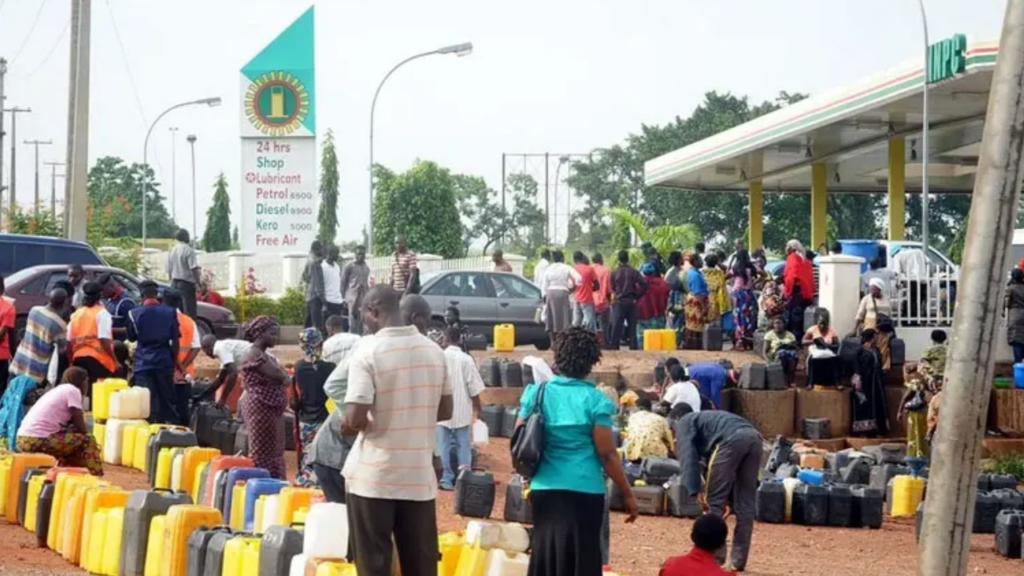Solid Minerals
Aluminum Lines Still Trouble the LME

LONDON — Some of the aluminum industry’s biggest hitters are lining up to criticize the London Metal Exchange. Their beef? Lines are still too long.
The 137-year-old bourse said last week it had shrunk the wait times to get metal out of its network of warehouses—a bone of contention for both buyers and sellers of aluminum.
But major producers and consumers say they’re waiting just as long. Top executives at United Co. Rusal, 0486.HK 0.00% the world’s largest producer of aluminum, and Atlanta-based Novelis Inc., which buys huge quantities to make sheet metal for beverage cans, cars, buildings and electronics, say queues are actually growing in two critical delivery locations.
“It is a little bit early for the LME to be congratulating themselves on this,” said Colin Hamilton, head of global commodities research at Australian bank Macquarie.
The backlog at warehouses within the LME’s system of 700 sheds grew after the financial crisis, as producers pledged metal to traders and banks to raise capital. Metal thus sat in storage, out of the reach of big buyers such as can manufacturers and auto makers. Buyers would be doubly frustrated as producers could then charge high premiums for easier access.
For years, consumers have complained of problems procuring metals at five locations around the world: Detroit; Vlissingen, the Netherlands; New Orleans; Johor, Malaysia; and Antwerp, Belgium. At each of those cities, there is one warehousing company with a queue of more than 100 days for metal delivery. In November, the LME said it would tackle backlogs at any warehouse with queues of 50 days or more.
Last week, it said its efforts were starting to bear fruit: four of the five trouble spots had seen a reduction in wait times, the exchange said. But metals users dispute that, saying that lines appear actually to have lengthened in two places: Detroit and Vlissingen.
“Since the LME rule change was announced [in November] we have seen a record queue develop in Detroit following a spate of warrant cancellations,” said Nick Madden, chief supply chain officer at Novelis. Warrant cancellations equate to requests for metal delivery.
“It will take a long time for the LME rules to have a tangible impact on the market,” he said.
Furthermore, analysts said much of the stock leaving locations where logjams had loosened wasn’t actually going to buyers at all. Instead, it appeared to be financed metal moving into off-exchange, or shadow, warehouses where stock data is less transparent.
“It’s just a shift from visible stocks to invisible stock,” said Macquarie’s Mr. Hamilton.
To be sure, the LME had warned of both initial queue increases should buyers request metal in the expectation of quicker delivery, and of movement into shadow warehouses, as potential effects of its reforms. It didn’t provide further comment when contacted this week.
But Chris Thorne, a spokesman for the Association of Aluminum Users, which represents more than a dozen companies such as brewers and auto makers, said their supply chain remains “in jeopardy.”
Mr. Thorne, who also represents a beer-industry trade group, told The Wall Street Journal that since the LME announced its rule changes, wait times for aluminum in Detroit and the Netherlands have increased 10%-20% for large buyers.
“The London Metal Exchange has proven it does not have the ability to self-regulate,” he said. “We are asking regulators and policy makers here in the U.S. to increase both their oversight and their enforcement.”
Even Rusal said data it compiled from the LME’s own reports show that line lengths at Detroit and Vlissingen had increased since the LME announced its rule change.
“In fact the queue length within the Detroit warehouse is at a historical high,” said Steve Hodgson, director of sales and marketing at Rusal, in a statement.
Globally, around 45% of the aluminum held in LME facilities has been requested for delivery.
Citigroup C +0.22% analyst David Wilson said in an interview that the largest and most important lines are in Vlissingen and Detroit.
“It might be that three warehouses have improved, but those aren’t the ones with significant tonnages of aluminum in them. There haven’t been improvements in the queues affecting the markets,” Mr. Wilson said.
– WALLSTREET JOURNAL
Business
Nigeria set to boost Naira value and foreign reserve with local gold production, as Tinubu receives gold bar
IN a significant move to strengthen Nigeria’s economy, President Bola Tinubu received a symbolic gold bar on Sunday from the Minister of Solid Minerals Development, Dele Alake.
This gesture marks the commencement of the National Gold Purchase Program (NGPP), aimed at boosting the naira’s value and enhancing the country’s foreign reserves.
Minister Alake expressed gratitude to President Tinubu for his support of reforms in the solid minerals sector.
He highlighted that the NGPP, which involves sourcing gold from artisanal and small-scale miners and refining it to meet the London Bullion Market Association’s Good Delivery Standard, will substantially contribute to Nigeria’s economic stability.
Alake stated “This initiative will significantly increase our foreign reserves and strengthen the naira. The refined gold will be supplied to the Central Bank of Nigeria, marking a crucial step in our economic strategy.”
The presentation also underscored the first commercial transaction under the NGPP, establishing a centralized gold purchasing system that integrates small-scale miners, cooperatives, and production units across the nation.
This program is expected to provide a structured market for gold, fostering economic growth and stability.
He said, “The successful completion of the first commercial transaction clearly demonstrates the National Gold Purchase Program’s effectiveness. It has increased the nation’s foreign reserves assets and shown that using the Nigerian Naira to purchase a liquid asset traded in United States Dollars, such as gold, is a viable strategy. This transaction has also underscored the potential of the National Gold Purchase Program to enhance fiscal and monetary stability.”
Alake added that the initial commercial transaction under the program resulted in a +US$5 million boost in Nigeria’s foreign reserve assets.
The transaction involved refining over 70 kilograms of gold to meet the London Bullion Market quality standard and aggregating locally mined gold, thereby infusing approximately NGN6 billion into the rural economy.
President Tinubu expressed appreciation for the Ministry’s accomplishment in advancing the government’s goal of economic diversification by acknowledging and displaying the symbolic gold bar
Solid Minerals
FG Fingers Foreigners Sponsoring Banditry For Illegal Mining

The Nigerian Government has threatened to come down heavily on foreigners sponsoring bandictory as a way of sustaining illegal mining activities in parts of the country.
The warning was handed down in Abuja by Minister, Solid Minerals Development, Dr Oladele Alake, while receiving a delegation of the Nigeria-China Chamber of Mines led by its National President, Dr. Olugbenga Ajala.
Details of these were contained in a statement released by Head, Press & PR, Ministry of Solid Minerals Development, Alaba Balogun over the weekend.
The statement cited, Dr Alake, thus, “The government will come down firmly on these unscrupulous foreign operators sponsoring banditry to perpetrate illegal mining: let me use this medium to appeal through you to tell those sponsors to desist or face the full wrath of the law.”
According to Dr Alake, the Ministry is committed to establishing a multi-agency task force that will end the activities of illegal miners and their collaborators.
The Minster made it clear that the FG had given illegal miners a 30-day-ultimatum to legitimise their businesses, quit Nigeria or incur the wrath of the law.
According to him, this will help “to streamline and structure the Small-Scale Artisanal Miners for maximum yield to the Federal Government.”
The delegation paid a courtesy call on the Minsiter at the Ministry’s headquarters in Abuja.
Energy
Fuel Scarcity: Govt Yet to Increase Pump Prices – NMDPRA

By Edozie Obasi-Eze
Amidst heightening uncertainties in the domestic petroleum products market characterised by scarcity and irregular pricing, the Nigerian Midstream and Downstream Petroleum Regulatory Authority (NMDPRA) has declared that there’s no intention to review pump prices upwards.
This was contained in an advisory issued by General Manager, Corporate Communications, NMDPRA, Kimchi Apollo.
He stated that the Nigerian National Petroleum Corporation Limited (NNPCL) had imported PMS with current stock levels sufficient for 34 days.
In an attempt to address panic buying and speculations which have seen price of Premium Motor Spirit (PMS) oscillate between N180-N250 in the Lagos area, Apollo assured that there was enough quantity of the product in the country already.
He said, “Consequently, marketers and the general public are advised to avoid panic buying, diversion of products and hoarding.
“In keeping with the Authority’s responsibilities as outlined in the Petroleum Industry Act (PIA), the Authority assures the public that it would continue to monitor the supply and distribution of petroleum products nationwide, especially during this holiday season.”












